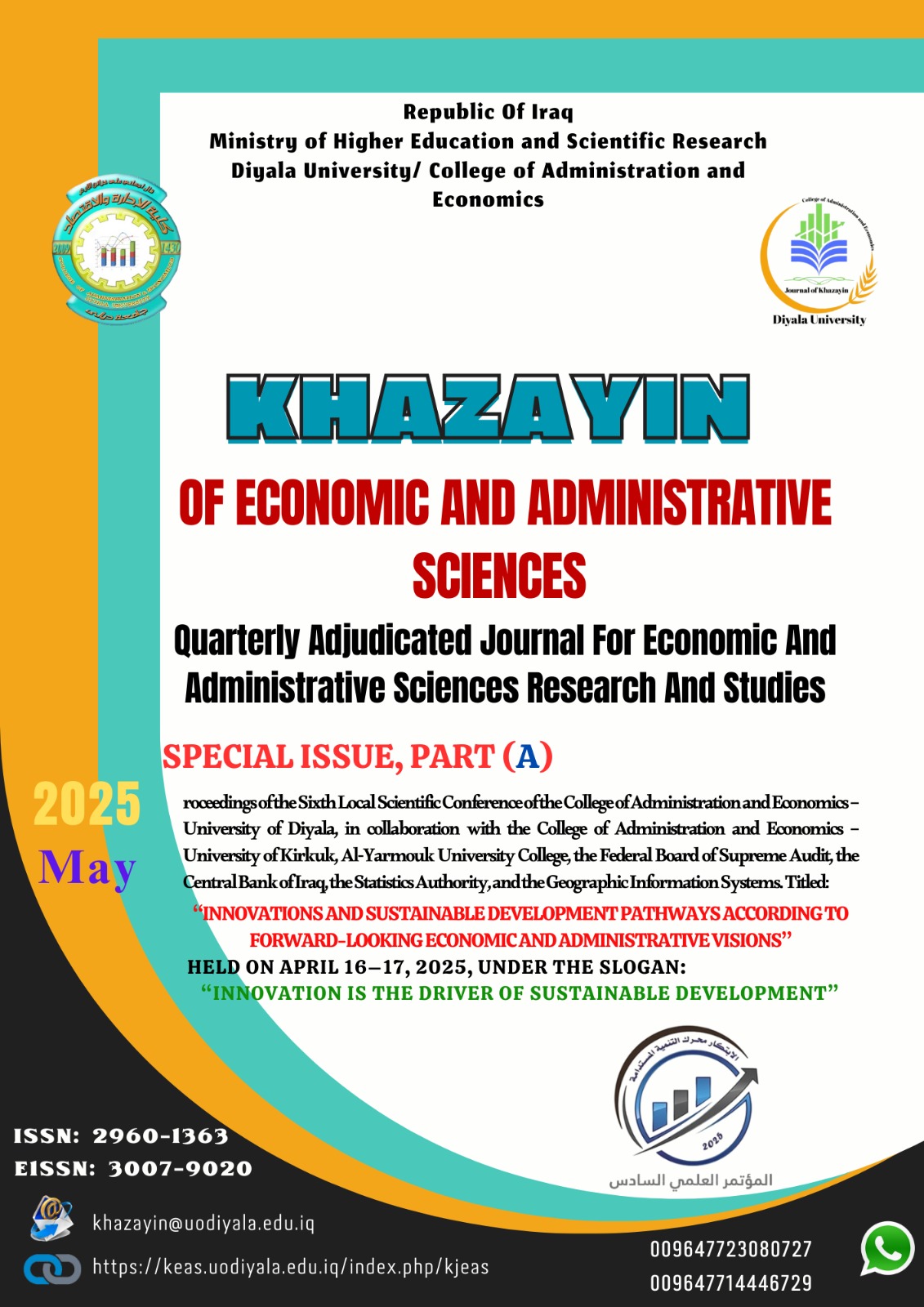Abstract
This research investigates the role of strategic environmental auditing in the attainment of sustainable development goals, with a specific emphasis on the healthcare sector. The analyzed sample, represented by the Diyala Health Directorate, reveals that environmental auditing plays a crucial role in advancing the environmental performance of institutions. This process aids in identifying vulnerabilities and recommending improvements that enhance environmental efficiency and mitigate adverse environmental impacts. Nonetheless, the findings indicate that implementing environmental auditing within healthcare institutions is still constrained by a lack of awareness regarding its significance, inadequate financial and human resources, and the absence of standardized protocols. A principal conclusion of this study is that strategic environmental auditing has the potential to serve as an effective instrument for reconciling economic growth with environmental conservation; however, this necessitates heightened awareness about its importance and the provision of requisite resources for its execution. Furthermore, the results indicate that institutions that have embraced advanced environmental management systems, such as ISO 14001, demonstrate enhanced capabilities in achieving sustainable development goals. Consequently, this research advocates for increased awareness of the significance of environmental auditing, the allocation of financial and human resources to facilitate its implementation, and the development of standardized protocols to ensure the quality and effectiveness of these processes. It also encourages institutions to adopt long-term environmental strategies that bolster their environmental efficiency and diminish their negative impacts on the environment. In doing so, environmental auditing can evolve into a formidable tool for achieving sustainable development and securing a better future for subsequent generations.
Keywords
environmental performance
Health sector
Strategic Environmental Auditing
Sustainable Development
Abstract
يستعرض هذا البحث دور التدقيق البيئي الاستراتيجي في تحقيق أهداف التنمية المستدامة، مع التركيز على القطاع الصحي من خلال العينة المدروسة والتي تمثلت بدائرة صحة ديالى، توصل البحث إلى أن التدقيق البيئي يلعب دورًا محوريًا في تحسين الأداء البيئي للمؤسسات، حيث يساعد في تحديد نقاط الضعف واقتراح تحسينات تعزز الكفاءة البيئية وتقلل من الآثار السلبية على البيئة. ومع ذلك، أظهرت النتائج أن تطبيق التدقيق البيئي في المؤسسات الصحية لا يزال محدودًا بسبب نقص الوعي بأهميته، ونقص الموارد المالية والبشرية، وعدم وجود معايير موحدة، ومن أهم الاستنتاجات التي توصل إليها البحث هي أن التدقيق البيئي الاستراتيجي يمكن أن يكون أداة فعالة لتحقيق التوازن بين النمو الاقتصادي وحماية البيئة، ولكن ذلك يتطلب تعزيز الوعي بأهميته وتوفير الموارد اللازمة لتنفيذه، بالإضافة إلى ذلك، أظهرت النتائج أن المؤسسات التي تتبنى أنظمة إدارة بيئية متقدمة مثل ISO 14001 تكون أكثر قدرة على تحقيق أهداف التنمية المستدامة ، لذا يوصي البحث بزيادة الوعي بأهمية التدقيق البيئي، وتوفير الدعم المالي والبشري لتنفيذه، وتطوير معايير موحدة لضمان جودة وفعالية هذه العمليات. كما يوصي بتبني المؤسسات لاستراتيجيات بيئية طويلة المدى تعزز من كفاءتها البيئية وتقلل من تأثيراتها السلبية على البيئة. بذلك، يمكن للتدقيق البيئي أن يكون أداة قوية لتحقيق التنمية المستدامة وضمان مستقبل أفضل للأجيال القادمة.
Keywords
التدقيق البيئي الاستراتيجي، التنمية المستدامة، القطاع الصحي، الأداء البيئي
